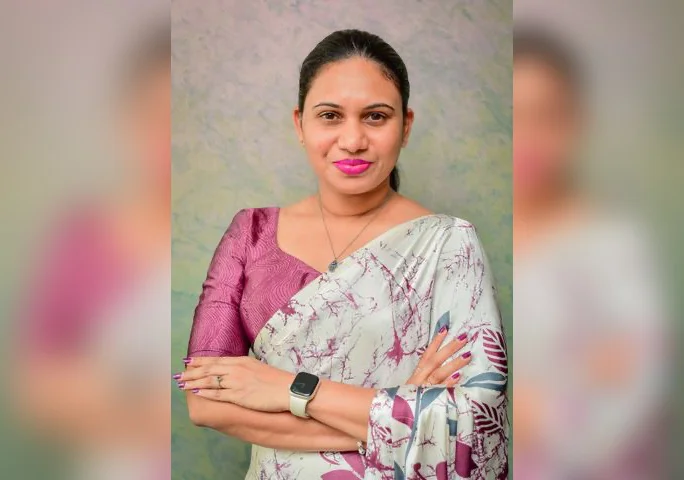Business
SL’s education sector, ‘key battleground for long term economic recovery’

By Ifham Nizam
As Sri Lanka faces the aftershocks of multiple crises, including the COVID-19 pandemic, economic downturn and the Easter Sunday attacks, the country’s education sector has become a key battleground for securing long-term economic recovery, according to Institute of Policy Studies (IPS) Research Fellow Dr. Bilesha Weeraratne.
In an expert panel discussion recently in Colombo, IPS stakeholders explored the critical role of education in building a skilled workforce, while also highlighting the immense challenges that must be addressed to turn education into a catalyst for growth.
Weeraratne said that with Sri Lanka suffering a negative growth rate of 6.7% by the third quarter of 2023, the labour market remains one of the hardest-hit areas.
Weeraratne added: “As wages stagnate, the incentive for workers to improve their skills or seek better employment dwindles, feeding into a cycle of low productivity. Thus crisis management has prompted emergency measures, like the five-year no-pay leave policy for public sector employees.” However, she explained that these are short-term fixes that do not address the deeper structural issues plaguing the labour market.
Weeraratne stressed that education is seen as a powerful tool to break this cycle, but the sector itself has been grappling with severe disruptions and underfunding, she said, adding that Sri Lanka’s education system is crucial in fostering productivity and innovation, but it faces serious hurdles.
Her presentation delved into the many challenges facing education. From the 2019 Easter bomb attacks to the pandemic and ongoing economic crises, these external pressures have led to a decrease in education investments, depreciating resources, and the adoption of outdated approaches that struggle to meet the demands of a rapidly changing labour market.
IPS, Director of Research, Dr. Nisha Arunatilake said that one alarming statistic revealed that while 97% of children aged 5 to 16 are enrolled in school, a significant proportion—especially those with special needs or from deprived socioeconomic backgrounds—are left behind. After the compulsory education age of 16, participation drops drastically, with only 63% qualifying for advanced level exams and just 20% attending university due to capacity issues.
She noted that Sri Lanka’s education system is ill-equipped to handle the demands of an evolving job market driven by technological change. `The need for highly skilled workers is growing, but 65% of 20 to 24-year-olds are not engaged in any form of education, leading to a poorly skilled workforce. While the government has made efforts to introduce vocational training, these programs have not scaled up sufficiently to address the needs of the economy.’
Worse still, she said, the quality of education is lagging. A 2019 study by NEREC revealed that students’ English and mathematics skills are well below international standards. Students scored an average of just 34% in English and a dismal 20% in mathematics, signaling a serious gap in the education system’s ability to prepare children for a globalized, technology-driven future.
Arunatilake added: `Compounding the issue is the unequal allocation of resources across Sri Lanka’s education system. Elite schools receive the majority of well-trained teachers, while rural schools, which often serve lower-income families, suffer from poor staffing and inadequate resources. Meanwhile, policy inconsistency—driven by frequent changes in education ministers and short-term priorities—has stymied long-term progress.’
‘Given the current economic constraints, while increasing funding is ideal, it is not feasible in the short term. Instead, innovative low-cost solutions could offer a way forward. Examples could be given from Pakistan, where technology is being leveraged to provide education to children with special needs and virtual labs are being used in rural areas to deliver hands-on learning experiences.
‘Stronger governance and better allocation of resources are needed. Sri Lanka’s education system has suffered from weak policy implementation and political interference. Improving governance, addressing resource inequalities, and strengthening disaster risk management are among the key recommendations.
‘While Sri Lanka’s education system faces formidable challenges, it remains a pivotal force in rebuilding the nation’s economy. If the government can implement effective reforms and tap into technological solutions, the country could better equip its youth with the skills needed to thrive in an increasingly digital and globalized world.’
Business
NDB reports all-time high earnings; doubles PAT on a normalised basis

National Development Bank PLC (hereinafter ‘the Bank’) announced its results for the financial year ended December 31, 2025 to the Colombo Stock Exchange recently. Full year results tabled by the Bank showcase a strong growth across all business lines with Net Banking Revenue increasing by a 45.2% on a comparable basis.
Like most other peers, the Bank’s 2024 financial performance was positively impacted following the successful conclusion of the ISB debt restructure with a one-off impact on interest income, fee income and net impairments amounting to LKR 1.4 billion, LKR 0.7 billion and LKR 9.4 billion, respectively for the said year.
Fund based income
Net interest income (NII), which accounts for close to 75.0% of Bank’s total operating income, grew by 6.5% on a normalised basis. Despite pressure on interest-earning assets arising from the lower interest rate environment, the Bank’s disciplined margin management helped stabilise Net Interest Margin (NIM) at 4.0% for the year. On a comparable basis, excluding one-off exceptional items, NIM stood at 4.2%, compared to 4.3% for both scenarios in 2024. By the end of the year, the Bank had close to LKR 29.3 billion in Loans and Deposits under a special arrangement with its customer(s) with a netting-off feature (end 2024: LKR 19.6 billion).
Non-fund based income
Net fee and commission income reached LKR 8.1 billion for the year – representing a growth of 14.3% from LKR 7.1 billion in 2024 excluding ISB restructuring related fees. Key growth drivers for the current year were trade finance, credit and lending, digital banking and credit and debit cards.
Credit and operating costs
Credit costs for the year amounted to LKR 5.7 billion, reflecting a substantial reduction of 57.1% compared to LKR 13.2 billion in 2024, a testament to the Bank’s strong credit underwriting practices and focused efforts on collections and recoveries. The Bank’s success on account of the latter is best reflected in notably improved stage 2 and 3 loan stock which stood at 7.9% and 10.8% respectively at end 2025 as compared with 16.6% and 14.0% at end 2024. Stage 3 provision coverage also saw further improvement to 59.1% from 54.5% during 2024 showcasing the Bank’s prudent management of credit risk.
Operating expenses closed at LKR 19.0 billion for the year, marking a 13.1% YoY increase. This increase was primarily driven by routine staff-related increments and necessary market realignments, along with higher investments in IT infrastructure and business development undertaken during the year.(NDB)
Business
PMF Finance appoints Nishani Perera as Non-Executive Independent Director

PMF Finance PLC has announced the appointment of Ms. Nishani Perera as a Non-Executive Independent Director, further strengthening the Company’s strategic oversight, governance framework, and board-level expertise as it continues to advance its transformation and long-term growth agenda.
Ms. Perera is a Fellow Member of the Institute of Chartered Accountants of Sri Lanka and brings over 19 years of experience across audit, assurance, advisory, risk management, and corporate governance. She currently serves as Partner – Audit & Assurance at Moore Aiyar and as Director of Moore Consulting (Pvt) Ltd.
Over the course of her career, Ms. Perera has gained substantial exposure to listed companies, banks, finance companies, and other regulated entities. Her areas of expertise include financial reporting under SLFRS/LKAS, audit and risk oversight, regulatory compliance, and the implementation of quality management standards. She has worked closely with Boards of Directors and Audit Committees on matters relating to financial reporting integrity, internal control frameworks, enterprise risk governance, and adherence to evolving regulatory requirements.
Ms. Perera holds a Master of Laws (LL.M.) from Cardiff Metropolitan University in the United Kingdom and a Bachelor of Science in Business Administration (Special) from the University of Sri Jayewardenepura. She is also an Associate Member of ACCA and CMA Sri Lanka, and a Fellow Member of AAT Sri Lanka.
Business
Capital Alliance deepens capital market presence with third Closed-End Fund Listing at the CSE

The units of the “CAL Three Year Closed End Fund” were officially listed on the Colombo Stock Exchange (CSE) recently. Accordingly, a total of 841,263,375 units of the ‘CAL Three Year Closed End Fund’ were listed by Capital Alliance Investments Ltd (CALI), a member of the Capital Alliance Ltd Group (CAL Group). The listing was commemorated by way of a special bell ringing ceremony on the CSE trading floor.
CSE CEO Rajeeva Bandaranaike speaking at the occasion remarked upon the rising demand for Unit Trusts: “When you look at funds, particularly unit trusts in today’s active capital market, we see a lot of domestic interest in the market with more investors entering. Funds, not only fixed income funds but also growth and balanced funds, can be the ideal vehicle through which new investors can enter the market. We see this interest reflected in the success of CAL’s Three Year Closed End Fund. More people are seeking to invest their money through professional fund managers.”
-

 Features5 days ago
Features5 days agoWhy does the state threaten Its people with yet another anti-terror law?
-

 Features5 days ago
Features5 days agoReconciliation, Mood of the Nation and the NPP Government
-

 Features5 days ago
Features5 days agoVictor Melder turns 90: Railwayman and bibliophile extraordinary
-

 Features4 days ago
Features4 days agoLOVEABLE BUT LETHAL: When four-legged stars remind us of a silent killer
-

 Features5 days ago
Features5 days agoVictor, the Friend of the Foreign Press
-

 Latest News6 days ago
Latest News6 days agoNew Zealand meet familiar opponents Pakistan at spin-friendly Premadasa
-

 Latest News6 days ago
Latest News6 days agoTariffs ruling is major blow to Trump’s second-term agenda
-

 Latest News6 days ago
Latest News6 days agoECB push back at Pakistan ‘shadow-ban’ reports ahead of Hundred auction













